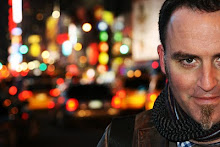As someone who is deeply proud to have been educated at the local comp, my line on this argument is always going to be that if State schools are ALLOWED to get it right, they will always give a child, not just a decent education, but a well-rounded sense of his or her own position within the world. Going to a good state school makes you realise how inherently lucky or indeed unlucky you are, and more crucially, gives you the tools to do something with this knowledge.
The key word here is "allowed." The problem with the state system is that it's subjected to the whims of successive education ministers, who want to make their mark by changing things, usually to make schools appear more efficient and perform better in areas that can be more easily ranked.
A most extreme version of this would appear to be the present Michael Gove, who seems to be banging a very peculiar rhythm, despite the advice of teachers and even the civil servants who work for him.
The most worrying of his policies, in my view, is the down-grading of subjects like music to a "soft" status, which means the state will not give support to schools who wish to teach it. My mate Debs is now teaching music GCSE as an after school club. If we allow this to happen, sooner or later, music in state schools will become the terrain of teachers of other subjects who happen to be musicians in their spare time.
In my day, music in state schools was a right rather than an option. If a child showed aptitude, he or she could learn an instrument for free, and for a small annual fee could enroll in the county music system. These were the golden days when music in schools was so good that the European Youth Orchestra had a 40% cap on British players. Imagine how many gold medals British musicians would have won in those days if these were the music Olympics!
My university form was chockablock with the opportunities I'd been given by playing music. I'd played the 'cello in Germany, Canada and on countless television programmes. I'd even been given a Blue Peter badge - a mark, of course, of pure genius!
But that was when things worked; when kids at State Schools could hold their heads up high because of what they'd achieved rather than what society had told them they should EXPECT to achieve. It's a subtle, but deeply important distinction.
So how do we put a positive spin on this? Well, we lobby. We lobby schools to value the subjects like music, drama and art, which give kids (often less academic ones) the chance to shine, to explore, to travel, to interact, to build up a CV of skills and experiences, to find hobbies for life, and more crucially, perhaps, take a break from relentless exams and academia.
We try to change perceptions of the arts. A taxi driver in Newcastle recently told me that his 9 year-old daughter was badgering him to go to dance classes and that he was horrified that she could even contemplate something that would take her away from her studies and give her a "false sense of hope for the future." I suggested that without something interactive like dance in her life, she might wake up one day and realise she only knew how to communicate virtually. I basked for a moment in a curious silence...
We lobby the government. We lobby our local authorities to keep their arts for all policies. We show them the export potential of art in a country which is still in recession. Think about Adele's tax bill, or what the producers of Skyfall will earn? Surely any government would relish an opportunity to have a bit of that?
Above all, we look at how excited we all were by the Olympics, and how amazing it feels to be world leaders in a field. We excel in the arts and the arts must be allowed to be part of our Great Country's future... And that starts with education.

No comments:
Post a Comment
Note: only a member of this blog may post a comment.